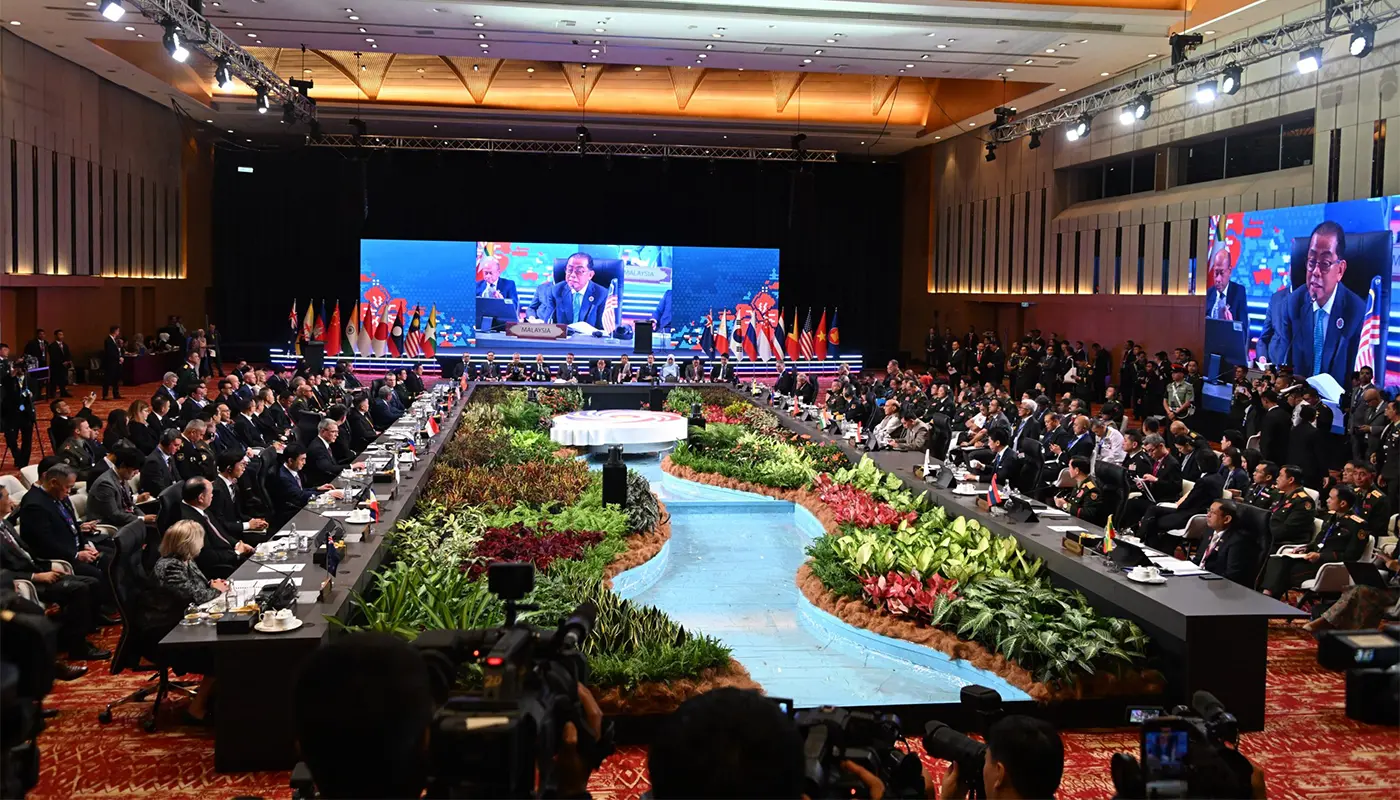KUALA LUMPUR – The 12th ASEAN Defence Ministers’ Meeting Plus (ADMM-Plus) convened in Malaysia’s capital this week, bringing together defence leaders from Southeast Asia and eight key dialogue partners to discuss regional security challenges and future cooperation.
The forum, held from 30 October to 2 November 2025, marked the 15th anniversary of ADMM-Plus, which has grown into the region’s most significant defence and security platform.
The meeting was attended by ministers and senior officials from the ten ASEAN member states, alongside representatives from Australia, China, India, Japan, New Zealand, Russia, South Korea, and the United States.
Malaysia’s Defence Ministry confirmed that a record 20 joint initiatives were tabled, the highest number in the forum’s history.
These included ten new concept papers, guidelines, and protocols, as well as plans for four maritime exercises and additional training programmes.
Officials said the measures aim to strengthen cooperation in areas such as counter-terrorism, cyber defence, humanitarian assistance, and maritime security.
ASEAN Secretary-General Dr Kao Kim Hourn highlighted the importance of the forum in addressing both traditional and non-traditional threats. He noted that the ADMM-Plus had made “significant progress in fostering trust and practical cooperation” since its inception in 2010.
India’s Defence Minister Rajnath Singh, who addressed the gathering, reflected on the forum’s evolution. “The ASEAN-India relationship remains a strong pillar of stability in today’s uncertain world,” he said, stressing that maritime security would remain central to India’s engagement with the region.
He also welcomed the second edition of the ASEAN-India Maritime Exercise, which he described as a step towards enhancing interoperability.
Malaysia, as host, underscored the need for collective responses to regional flashpoints. Defence officials emphasised that the Indo-Pacific’s stability depends on open communication channels and adherence to international law, particularly in contested maritime zones.
The meeting also provided opportunities for bilateral talks. Rajnath Singh held discussions with several counterparts, including Malaysia’s senior leadership, to deepen defence ties and explore new avenues of cooperation.
Observers noted that the record number of initiatives reflects ASEAN’s determination to adapt to evolving security dynamics. Analysts pointed out that cyber threats, climate-related disasters, and maritime disputes are increasingly shaping the region’s defence agenda.
The ADMM-Plus concluded with a joint declaration reaffirming the commitment of member states to peace, stability, and rules-based order in the region.
Leaders agreed that the forum would continue to serve as a platform for dialogue and practical collaboration, particularly as geopolitical competition intensifies in the Indo-Pacific.
With its expanded agenda and growing participation, the 12th ADMM-Plus has reinforced its role as a cornerstone of regional defence diplomacy, signalling ASEAN’s intent to remain at the centre of security cooperation in Asia.
Sources: Malay Mail Malaysia Sun, ASEAN Secretariat News





